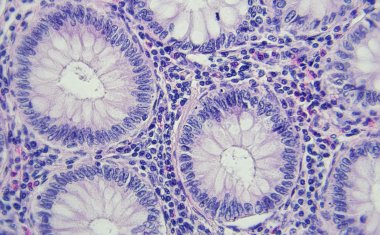Bayer to Pay $14.2 Billion for U.S. Merck’s Consumer Business
As expected, Germany's Bayer has emerged as the winner of the race to acquire U.S. Merck's consumer care business. The $14.2 billion deal announced on May 5 is expected to close in the second half of 2014.
The agreement between Bayer and Merck follows the exit of several rivals, believed to include Procter & Gamble of the U.S., Germany's Boehringer Ingelheim, Switzerland's Novartis and France's Sanofi and - as last to bow out - the UK's Reckitt Benckiser.
Based in New Jersey, the Merck business has four products regarded as OTC blockbusters with sales exceeding $100 million. They include the allergy treatment Claritin, the Dr. Scholl's footcare brand, the laxative MiraLAX and Coppertone suncare products. Around 70% of the business's 2013 sales of $2.2 billion were in the U.S. market.
The transaction is the German healthcare industry's biggest since Bayer's 2006 acquisition of compatriot Schering for €17 billion ($24 billion, or $21.6 billion at the time). Here it beat out Germany's Merck KGaA.
Because of the often confused names, the German company issued a statement underscoring that it had not sold its own consumer health business.
In a conference call to discuss the acquisition, Bayer CEO Marijn Dekkers said it would be financed with a bridge loan facility provided by Bank of America Merrill Lynch, BNP Paribas and Mizuho, which will be syndicated to a larger group of banks. He added that no asset sales were needed to preserve the credit rating of A.
The agreed price represents a 2013 pro-forma EBITDA multiple of 21 times for the core consumer business and Bayer's estimates for the smaller prescription-only component.
Commenting on the sale, expected to generate proceeds of $8-9 billion after tax, Merck chairman and CEO Kenneth Frazier said it reflects his group's efforts to align its portfolio with its core strategy to be "the premier research-intensive biopharmaceutical company through targeted investments that strengthen our product portfolio and enhance our pipeline."
Dekkers said the assets merger would link "two highly complementary businesses, with virtually no overlap and would improve the Leverkusen-based life science and plastics group's position "across multiple categories and territories."
Consumer Care to represent 13% of Bayer group sales
The enlarged consumer care unit will account for about 13% of group sales, up from 10% currently.
By 2017, the CEO said Bayer expects to realize incremental revenue synergies of around US$ 400 million from the purchase, as well as incremental earnings contributions of around US$ 200 million per year from cost synergies.
One-off charges for executing the transaction and combining the businesses are expected to be around $500 million, primarily in 2014 and 2015.
The deal, which also includes a smaller ethical drug component, is expected to position Bayer as the world's second-biggest consumer healthcare company with sales of $7.4 billion, behind the new $9.5 billion consumer healthcare joint venture agreed last month by Novartis and GlaxoSmithKline.
Currently, U.S.-based Johnson & Johnson leads the industry with about 4% of the $200 billion global market. J&J's consumer unit has sales of $14.7 billion but market observers exclude many of its products from their analysis of the OTC sector.
In North America, the most important OTC market, Dekkers said Bayer will move up from no. 3 to become the top player. In Europe, "we will be a strong number two."
The CEO said the buy will make the German group global number one in dermatology with nearly €1.5 billion in sales and number one in gastrointestinal products, with sales of around €600 million. While remaining number two in nutritionals, it will become "a strong number two" in cold, allergy, sinus and flu, with sales of "well over €1 billion". Bayer will remain the world's third largest player in analgesics with €830 million in sales.
A second component of the agreement will be cooperation in clinical development and marketing of products for sGC modulation - a specific therapeutic mechanism in cardiology. This, Dekkers, said will "maximize the value" of Bayer's Adempas drug to treat pulmonary hypertension.
Under the arrangement, the German group will sell some marketing rights to the U.S. partner for up to $2.1 billion, including $1.1 billion in milestone payments contingent on development achievements. The two players will share costs and profits equally.





